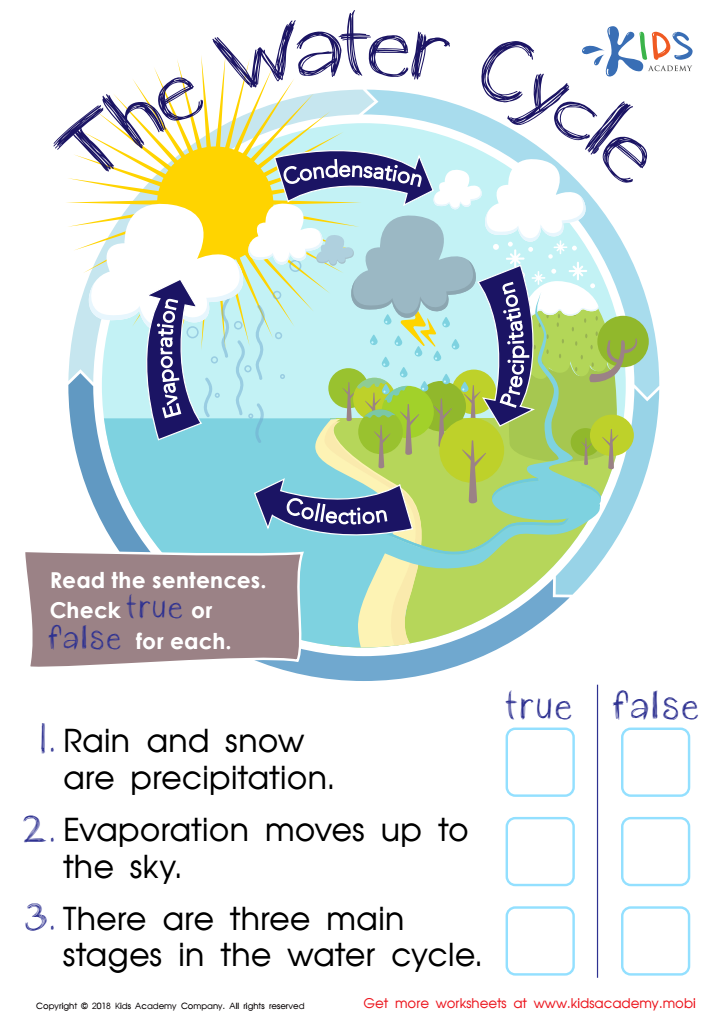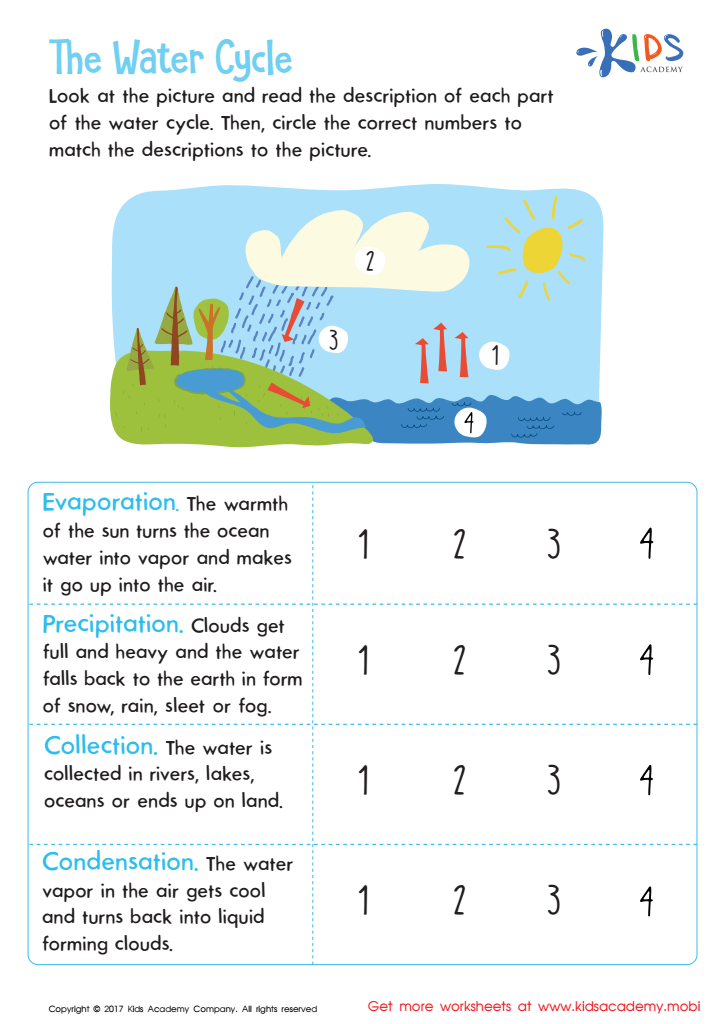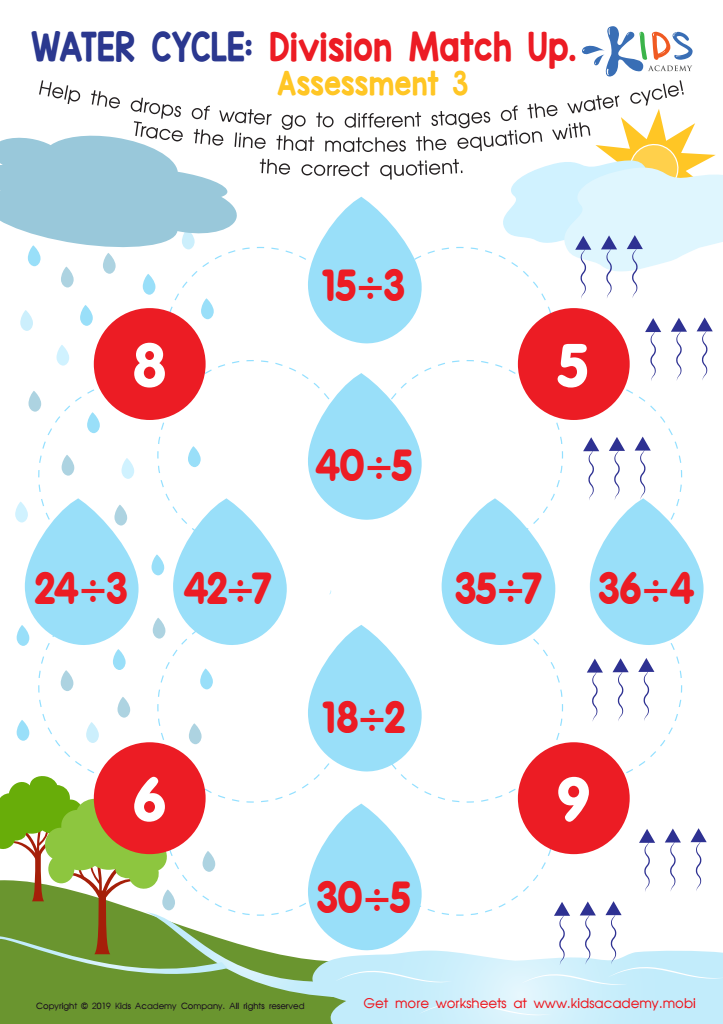Understanding water cycle Worksheets for Ages 7-9
3 filtered results
-
From - To
Explore our engaging "Understanding Water Cycle Worksheets" tailored for children aged 7-9! These interactive resources are designed to make the fascinating journey of water fun and easy to grasp. Featuring vibrant illustrations and age-appropriate activities, students will learn about evaporation, condensation, precipitation, and the significance of the water cycle in our environment. Each worksheet provides opportunities for critical thinking, creativity, and real-world application, ensuring a comprehensive understanding. Perfect for classrooms or home learning, these worksheets encourage exploration and curiosity while reinforcing essential science concepts. Dive into the world of water and empower your young learners with knowledge today!


The Water Cycle Worksheet


The Water Cycle Worksheet


Water Cycle Division Match Up Assessment 3 Worksheet
Understanding the water cycle is crucial for children aged 7-9, as it introduces them to fundamental environmental concepts. At this age, children are naturally curious about the world around them, and the water cycle provides a tangible way to explore scientific principles. By learning about evaporation, condensation, precipitation, and collection, children grasp how water moves through the environment. This knowledge fosters a sense of interconnectedness with nature, encouraging them to observe weather patterns, seasons, and their impact on daily life.
Parents and teachers play a vital role in nurturing this understanding, as it lays the foundation for responsible stewardship of natural resources. Learning about the water cycle can help children appreciate the importance of water conservation, instilling lifelong habits of sustainability. Additionally, integrating hands-on activities—like observing rain, creating water cycle models, or measuring water usage—makes learning engaging and memorable.
Moreover, awareness of the water cycle can lead to discussions about environmental issues such as climate change and its effects on water availability. By caring about this topic, parents and teachers equip children with knowledge and skills they need for informed citizenship, ultimately shaping a generation that values and protects their water resources.
 Assign to My Students
Assign to My Students




















